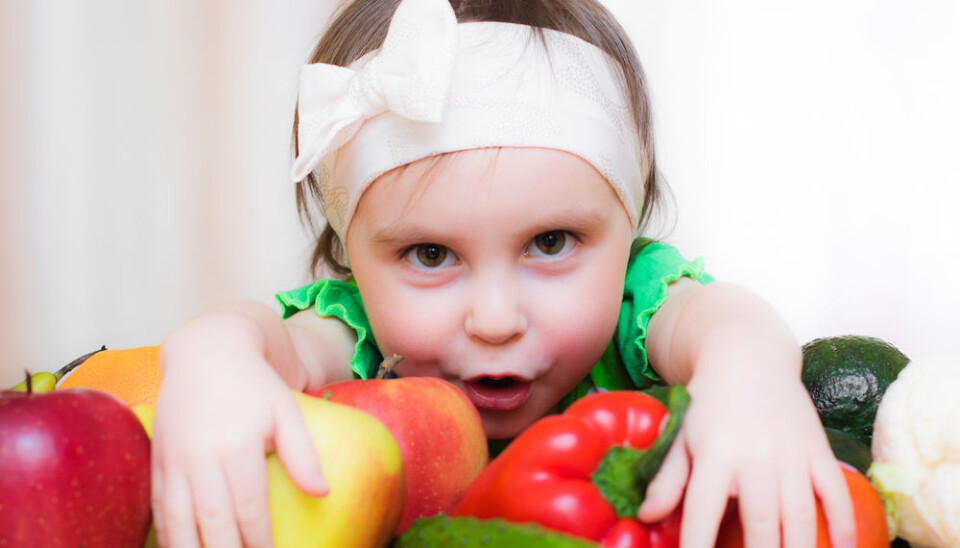
How to get kids to eat vegetables
If children eat vegetables when aged between 6 and 12 months, there is a greater chance that they will learn to like vegetables when they grow up, new study shows.
Low vegetable consumption in children is a concern in many EU countries, as fewer than a fifth of European children consume the WHO-recommended amounts.
A new European study, published in the journal Appetite, shows that the best period for teaching children to eat vegetables is when the kids are between 6 and 12 months of age. After their first birthday, they are far more sceptical about new foods, while also being strongly influenced by their parents’ eating habits.
”If you want your children to eat more healthy vegetables, it’s important that you eat vegetables yourself and that you offer your child a wide variety of them – and continue doing so. But most importantly, this has to be done before their first birthday,” says study co-author Per Møller, an associate professor at the Department of Food Science/Sensory Science at the University of Copenhagen, Denmark.
The study forms part of a European research project conveniently titled HabEat. Through a series of studies the project has shown that children who learn to eat vegetables at an early age are more likely to eat vegetables on a regular basis when they grow up.
Adults’ habits are contagious
Researchers from the University of Copenhagen, the University of Leeds, England, and the Centre de Sciences du Goût et de l’Alimentation in France examined the food habits of 274 children, distributed across three countries: Denmark, England and France.
The researchers asked the mothers of these children to fill in questionnaires with questions such as:
- How often was your child offered vegetables?
- How much did your child like vegetables?
- What kinds of vegetables did your child eat?
- How often did you eat vegetables?
The children were divided into three age groups. The group with the youngest children consisted of 6-12-month old children. The middle group had 13-24-month olds and the oldest group consisted of children aged between 25 and 36 months.
The results showed that the mother’s own penchant for eating vegetables correlated with how often the children were offered to eat vegetables and what types of vegetables they were offered.
At the same time, the results showed that the more often the kids were offered and the greater the variety of vegetables on offer, the more likely the children were to like vegetables. The study also found that after the children’s first birthday their openness to vegetables was significantly reduced.
The caregiver is crucial
The researchers looked at the mother’s eating habits and how this affected the children.
“It is not necessarily the mother who has an effect on the child’s eating habits. It could be anyone who takes care of the baby, so it could just as well be the father or somebody else,” says Møller.
”The key point, however, is that parents need to start as early as weaning age, i.e. from the moment the mother stops breastfeeding the baby.”
------------------------
Read the Danish version of this article at videnskab.dk









